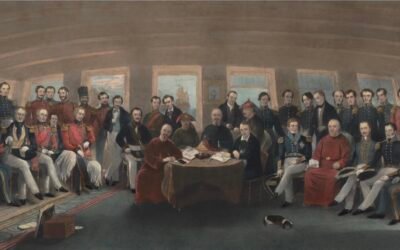Scholars and human rights activists examined the central features of the case in an important day for Taiwan.
by Alessandro Amicarelli

On January 11, CESNUR and Human Rights Without Frontiers organized one of their webinars on the Tai Ji Men case, on the theme “The Judiciary, Freedom of Religion or Belief, and the Tai Ji Men Case.”
Massimo Introvigne, an Italian sociologist who serves as editor-in-chief of “Bitter Winter” and managing director of CESNUR, introduced the webinar by discussing the works of sociologists of law who noted the risk that in modern societies the administrative justice may grow uncontrollably, invading the field of civil and criminal justice and ignoring other courts’ decisions. Although some verdicts by administrative courts in Taiwan were favorable to Tai Ji Men, Introvigne said, others severely damaged their rights. They include the 2006 decision by the Supreme Administrative Court on the 1992 tax bill and the recent August 2, 2024, unjust verdict of Taichung High Administrative Court, which missed an excellent opportunity to solve the Tai Ji Men case. Introvigne concluded that to ensure fairness and justice administrative judges cannot ignore the decisions of criminal and civil courts, as it happened in Taiwan when the landmark 2007 Supreme Court verdict favorable to Tai Ji Men was ignored in administrative cases.
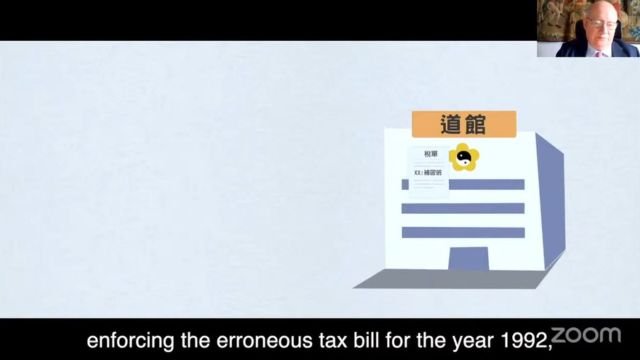
Introvigne then presented a video summarizing the main events in the Tai Ji Men case and introduced the two speakers of the first session, María Vardé, an anthropologist and doctoral candidate at the University of Buenos Aires, and Daniela Bovolenta, an Italian scholar, author, and contributor to “Bitter Winter.” Both speakers reminded the audience that the webinar celebrated Taiwan’s Judicial Day. This date commemorates the agreements signed on January 11, 1943, by the Republic of China with the United States and the United Kingdom. They put an end to the situation created by the so-called “Unequal Treaties” that had subtracted the citizens of these countries from the jurisdiction of Chinese courts. The judiciary of the Republic of China thus became truly independent and sovereign.
Judicial Day, Vardé said, has become an opportunity for Taiwan to celebrate the rule of law and the independence of the judiciary. The Unequal Treaties had a colonial character, and their end was a victory of anti-colonialism, she noted. However, just as colonialism discriminated against supposedly “inferior” people, contemporary violations of freedom of religion or belief, Vardé argued, are based on the idea that some spiritual paths are “inferior,” and their practitioners should not be granted basic human rights. Vardé quoted examples from her country, Argentina, and concluded that the Tai Ji Men case was also fueled by lies and slander, largely created by Prosecutor Hou Kuan-Jen, which discriminated against the dizi (disciples) of the group presenting them as “inferior” citizens.
Bovolenta mentioned the Italian example and thought of Judge Rosario Livatino, a Catholic magistrate who was killed by organized crime in Italy in 1990, at the young age of 37. He was beatified by the Catholic Church in 2021. Livatino, Bovolenta said, wrote repeatedly on the independence of the judiciary, emphasizing that a judge should not only be independent from politics but also from the pressure of the media and the so-called “public opinion.” Bovolenta noted that in the Tai Ji Men case a campaign of slander was created and resulted in media pressure that probably influenced some decisions of the Taiwanese courts. This is not the real independence of the judiciary, she concluded.
Willy Fautré, the co-founder and director of Human Rights Without Frontiers, chaired the second session and presented a video discussing the difficult but crucial theme of whether unjust orders should be obeyed. It was illustrated through the decision of a German court who after the fall of East Germany sentenced a guard who had shot a man trying to escape from East to West Berlin, dismissing the argument that he had just followed orders.

Fautré also mentioned the systemic problems of both the bureaucracy and the administrative judiciary in Taiwan. He noted that taxpayers rarely win their cases against the tax administration in Taiwan, and the immoral system of bonuses granted to bureaucrats who, rightly or wrongly, enforce tax bills creates distortions and corruption.
Fautré then introduced five dizi who offered their testimonies. Louis Chang, a recent law graduate, offered a reflection on his dual experience as a Tai Ji Men dizi and a young law professional. He gradually understood, in both capacities, that mechanical knowledge is not enough either to solve legal case or to present the Tai Ji Men experience to the world. On the contrary, he learned both from his Shifu (Grand Master) and his best law professors that theoretical knowledge should always be accompanied by empathy, compassion, and conscience.

Stella Liang, a project planning specialist, shared the story of how, when she accompanied her Shifu last October in a trip to Colombia, she was deeply impressed by the attitude of that country’s Vice Minister of Justice, who rang the Tai Ji Men’s Bell of World Peace and Love and offered moving words on love as the path to peace. She is less optimistic about the state of justice in Taiwan. She noted that judicial decisions seem to be very much influenced by the media, which are quick to declare whoever is investigated guilty without even knowing all the facts. This also happened in the Tai Ji Men case, Liang said, where Prosecutor Hou by manipulating the media created a situation of slander and discrimination against Tai Ji Men from which she and her family personally suffered.
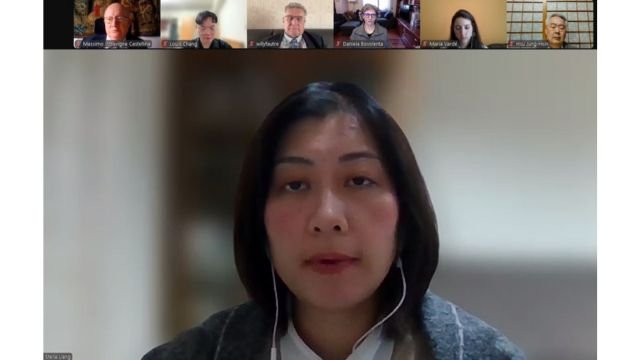
Hsu Jung-Hsin, an Associate Professor in the Department of Life Science at Taiwan’s National Dong Hwa University, joined Tai Ji Men as an adult hoping to solve his back pain problems through Qigong, as eventually happened. He compared the tax system in Taiwan with a medical problem he studied, the record number of cases of liver cancer in Taiwan. Scientists connected it with hepatitis, and the introduction of children anti-hepatitis vaccination significantly reduced the number of liver cancer cases. Similarly, Hsu said, Taiwan needs a “vaccination” against tax injustice. This should have been the introduction of Taxation Special Tribunals in 2016, but the recruitment of judges was unsatisfactory, and the system did not work. The fact that the Tai Ji Men case is not solved, Hsu said, proves that a “vaccination” is still needed.
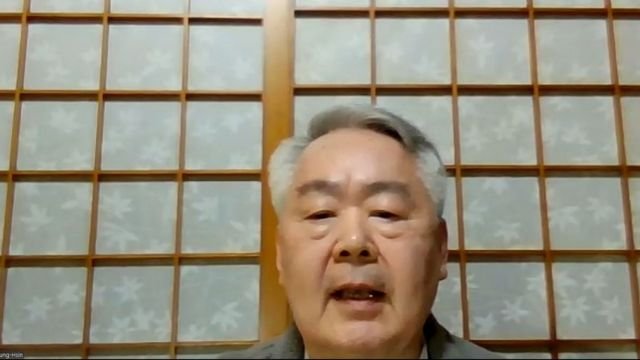
Ellie Dong, a legal and tax education video producer, reflected on the story of Hakamada Iwao, who in Japan was the world’s longest-incarcerated death row inmate. Dong focused on the role of Kumamoto Norimichi, one of the three judges who sentenced Hakamada to death in 1966. As a junior judge, he deferred to his senior colleagues, although he was not fully persuaded Hakamada was guilty of the homicides he was accused of. After the trial, Kumamoto carried a heavy burden and acted to have the case revised, although he died before seeing Hakamada’s final acquittal in 2024. The Hakamada trial, Dong concluded, proves that above the law, conscience should always be at work. If applied to the Tai Ji Men case, this principle would lead to its solution.
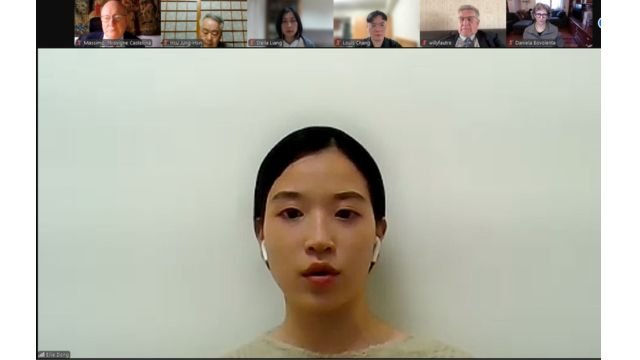
Peter Chang, a specialist in engineering consultancy, described his experience as an engineer in devising “Zero Harm” protocols, where workers are encouraged to strictly follow standard operating procedures (SOP) to avoid incidents. This is not a principle for engineering only, he said. As a dizi, he spent considerable time in studying the Tai Ji Men case and protesting against the injustice. He came to the conclusion that SOP mandated by the law were not followed by bureaucrats and some judges in Taiwan, leading to gross injustice.
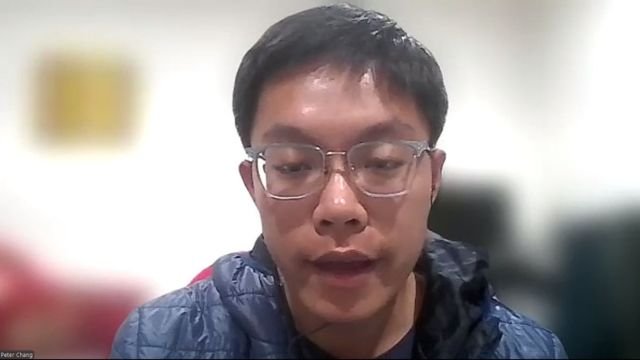
Marco Respinti, an Italian scholar and journalist who serves as director-in-charge of “Bitter Winter” offered the conclusions of the webinar. He noted the importance of the year 2025, which concludes the first quarter of a new century and a new millennium. The Tai Ji Men case lasted even more than a quarter of a century, Respinti said, as it started in 1996, twenty-nine years ago. What in these years dizi learned, he added, is that courts of law may sometimes give wrong decisions. There is a justice of the conscience that is above the justice of the judges. Respinti noted this was the rational for the character of Zorro, created by American writer Johnston McCulley in 1919 and popularized by several movies and TV series. Zorro is a nobleman who fights to rectify the injustices of colonial bureaucrats and judges in early 19th-century Spanish California. He has inspired many similar characters, all based on the principle that court decisions and even laws may be unjust, and it is legitimate to fight against them. This is what Tai Ji Men dizi do, Respinti concluded, and they deserve our unconditional support.
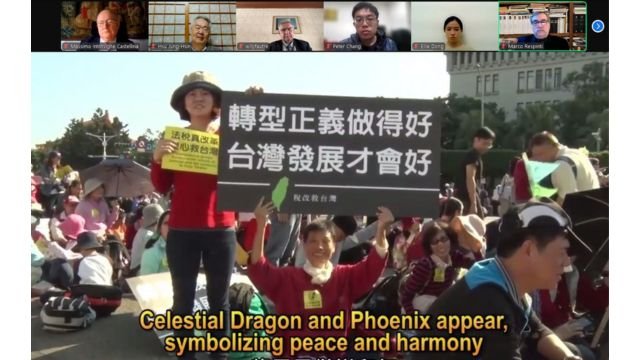
As usual, the webinar concluded with a musical video, “Rising Winds and Surging Clouds,” presenting the struggle of Tai Ji Men dizi for justice and for a solution of their case.

Alessandro Amicarelli is a member and director of Obaseki Solicitors Law Firm in London. He is a solicitor of the Senior Courts of England and Wales, and a barrister of Italy, specializing in International and Human Rights Law and Immigration and Refugee Law. He has lectured extensively on human rights, and taught courses inter alia at Carlo Bo University in Urbino, Italy, and Soochow University in Taipei, Taiwan (ROC). He is the current chairman and spokesperson of the European Federation for Freedom of Belief (FOB).


